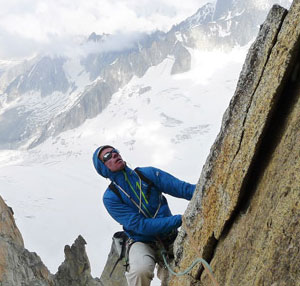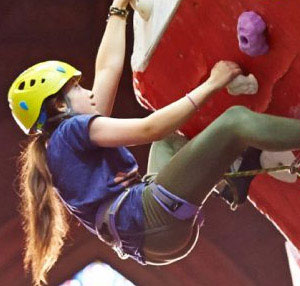Natalie Berry's Guide To Sport Climbing At The Olympics
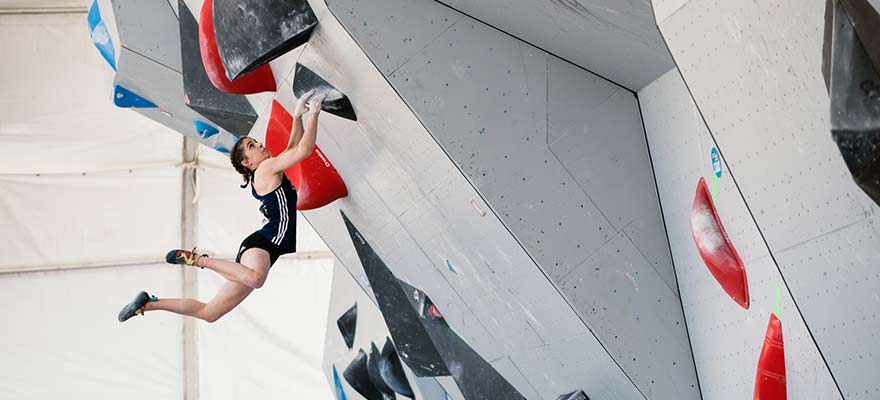
Main photo: Chris Prescott | Dark Sky Media
Words: Natalie Berry
Sport Climbing will make its Olympic debut in Tokyo, Japan. Although ‘sport climbing’ has historically referred to lead climbing on bolted rock, in the Olympics it will take on a new guise: a triathlon-like combined discipline event featuring Speed, Boulder and Lead climbing. Competitors and fans alike were initially unimpressed with this triple discipline format, but most athletes have warmed to the challenge of becoming a more well-rounded climber.
A total of 40 athletes (20 men and 20 women) will compete at the Games. The competition will be held over 4 days (2 days of competing per sex). The first day consists of a qualification round with 20 climbers and the second day is a final involving the top 8 climbers from qualification. Athletes compete in Speed first, then Boulder, then Lead with short rest periods between each discipline.
Speed
Known as the ‘100 metres of climbing’, climbers race an opponent to the top of a standardised 15-metre-high wall featuring two side by side routes , or ‘lanes’. The climbing holds and the route they form are routinely practised by the athletes on homologated walls across the globe.
Athletes have hit the buzzer and claimed world records in 5.48 seconds and 6.99 seconds for men and women respectively.
Athletes compete head-to-head in matches in a bracket tournament structure until the winner is decided in a final race between the two fastest athletes. A super-fast time isn’t ultimately important, though, since beating opponents to the buzzer is the objective and false starts and slips are common in this discipline, which can leave the field relatively open.
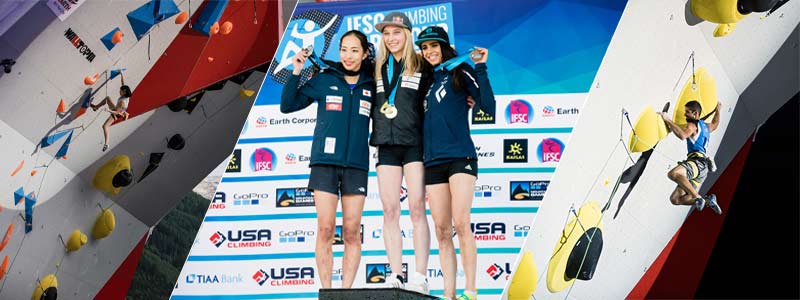
Image credit: Chris Prescott | Dark Sky Media
Boulder
Bouldering is climbing low to the ground (~4 metres in height) with safety mats for protection. Athletes aim to complete short sequences of around 6-8 movements, called ‘boulders’, which often incorporate acrobatic or parkour-like dynamic movements.
The boulders will be unknown to the climbers, so problem-solving skills come into play. Athletes can attempt a boulder as many times as required within a 5-minute time period, aiming to ‘top’ each boulder by taking the last hold in control with both hands.
A ‘Zone’ hold is a progress-marker of sorts, positioned on a halfway hold or on a move which is difficult to achieve but still below the top. This enables greater separation between athletes, who are ranked depending on their scores using the following hierarchy:
1. number of Tops
2. number of Zones
3. number of attempts to reach Tops
4. the number of attempts to reach Zones
For example, a score of 3t7 4z5 = 3 Tops in 7 attempts, 4 Zones in 5 attempts. To rank 1st, a climber must top the most problems and reach the most zones in the fewest attempts. Athletes will tackle 4 boulders in the qualification round and 3 in the final round. A perfect score would, therefore, be 4t4 4z4, or 3t3 3z3 in the final.
Lead
Lead climbing involves a wall around 15-20 metres in height and a climbing route with 40-60 holds/movements. Athletes climb with a rope and clip into safety points along the way up. Lead climbing tests endurance and pacing.
Climbers aim to ‘Top’ the climb by clipping the rope into the final safety point at the top of the wall within the 6-minute time period. Each hold reached is worth 1 scoring point and the athlete who climbs highest before falling or reaches the top will win the round. Only one attempt at the route can be made.
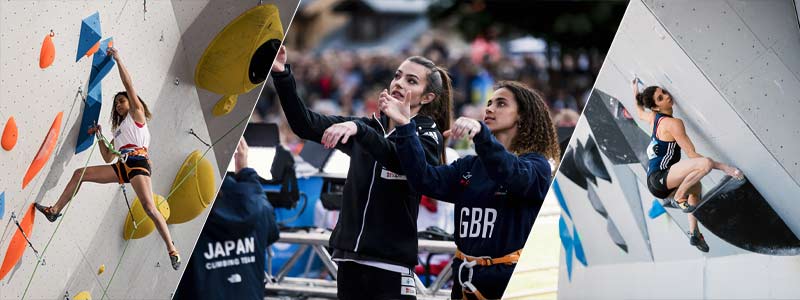
Image credit: Chris Prescott | Dark Sky Media
Scoring
The combined score across the three disciplines is determined by multiplying the athletes’ ranking positions in Speed, Boulder and Lead. For example, 1st in Speed x 2ndin Boulder x 3rd in Lead = 1 x 2 x 3 = 6 points. The athlete with the lowest score is the winner.
Since this multiplication system favours low numbers, athletes will be vying to rank 1st in their favoured discipline. It’s also worth noting that an athlete's final ranking is greatly influenced by the relative rankings of their fellow competitors in this system!
Climbing Schedule
Now you may be wondering, when will the climbing be on? The schedule has been released and here are times for sport climbing at the Olympics in 2021:
All times are in British Summer Time (BST).
|
Tuesday 3rd August | 09:00 - 14:40 09:00 Men's Combined Qualification - Speed 10:00 Men's Combined Qualification - Boulder 13:10 Men's Combined Qualification - Lead |
Wednesday 4th August | 09:00 - 14:40 09:00 Women's Combined Qualification - Speed 10:00 Women's Combined Qualification - Boulder 13:10 Women's Combined Qualification - Lead |
|
Thursday 6th August | 09:30 - 14:20 09:30 Men's Combined Final - Speed 10:30 Men's Combined Final - Boulder 13:10 Men's Combined Final - Lead 14:10 Men's Combined Victory Ceremony |
Friday 7th August | 09:30 - 14:20 09:30 Women's Combined Final - Speed 10:30 Women's Combined Final - Boulder 13:10 Women's Combined Final - Lead 14:10 Women's Combined Victory Ceremony |
Tuesday 3rd August | 09:00 - 14:40
09:00 Men's Combined Qualification - Speed
10:00 Men's Combined Qualification - Boulder
13:10 Men's Combined Qualification - Lead
***
Wednesday 4th August | 09:00 - 14:40
09:00 Women's Combined Qualification - Speed
10:00 Women's Combined Qualification - Boulder
13:10 Women's Combined Qualification - Lead
***
Thursday 6th August | 09:30 - 14:20
09:30 Men's Combined Final - Speed
10:30 Men's Combined Final - Boulder
13:10 Men's Combined Final - Lead
14:10 Men's Combined Victory Ceremony
***
Friday 7th August | 09:30 - 14:20
09:30 Women's Combined Final - Speed
10:30 Women's Combined Final - Boulder
13:10 Women's Combined Final - Lead
14:10 Women's Combined Victory Ceremony
***
Ones to watch: Janja Garnbret (SLO) and Tomoa Narasaki (JPN) are seeded first for the Games. Great Britain’s Shauna Coxsey stands in good stead for a medal as third seed in the women's event.
I have a media accreditation for Tokyo 2020, so I am looking forward to watching the action live and reporting on SportClimbing’s inaugural Olympics when it takes place in 2021!

